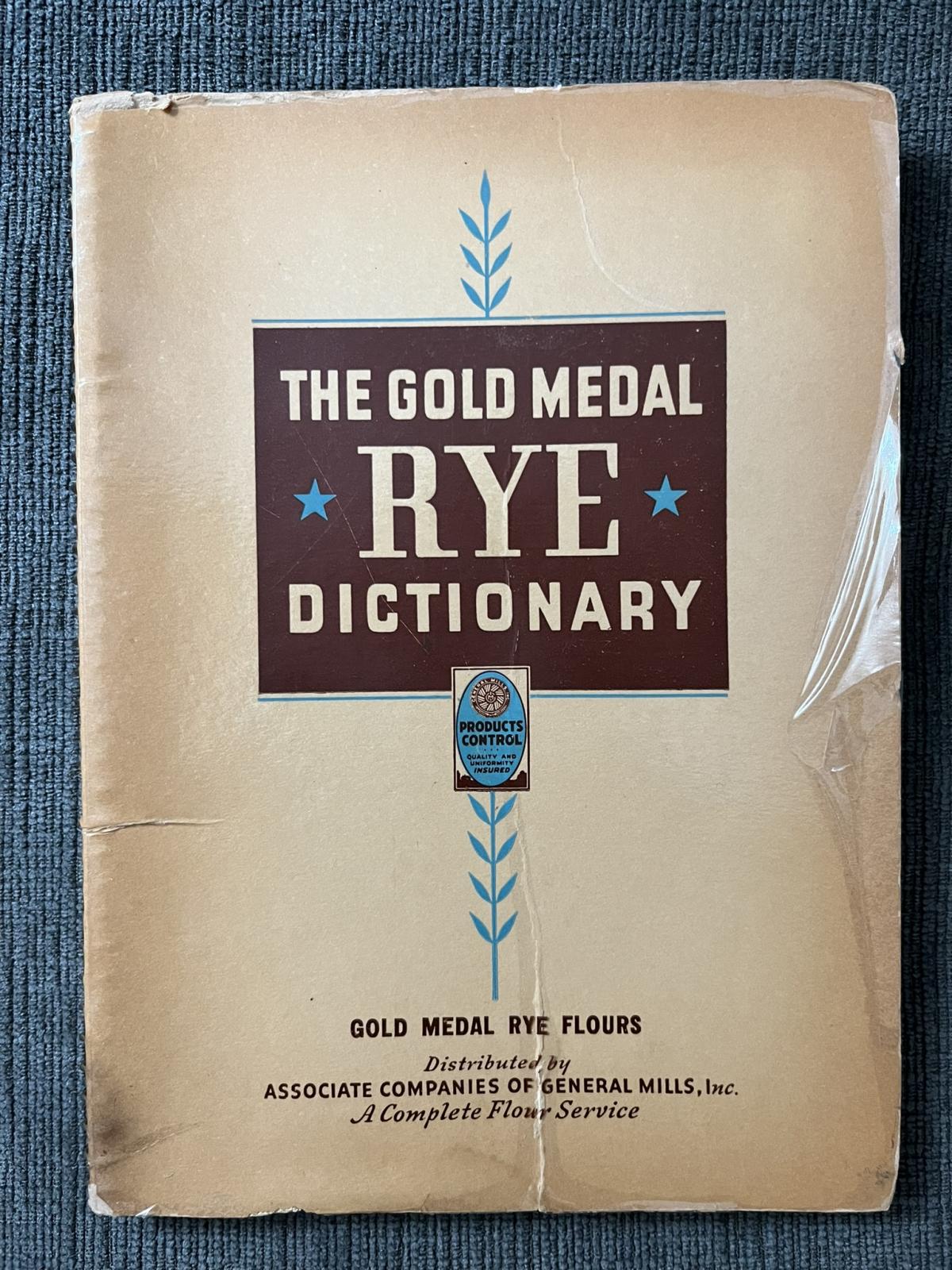
Old rye baking book: no sourdough?
In my quest for rye breads I came across this publication. Printed in 1936 it is devoted to baking with rye. It seems to me that rye was more commonly used in bread back then but surprisingly it has very scant information on sourdough. However there is information about quite a few types of rye flour that were available under the Gold Medal brand back then. I was a little bit disappointed as I was expecting to see some old school sourdough info there but it has almost none. Still, the recipes look interesting and I'm sure they're solid.

It contains an array of rye bread (and some roll) recipes. What's most interesting to me, is that even though it has a section on sours (and some recipes with a whiskey one being the most intriguing), where it's mentioned they can be added to the formulas, all of the bread recipes rely on yeast for leavening. The most elaborate recipe, which is "Russian Rye Bread (With Sour)" is a three stage (plus dough) affair that specifies "old dough" in the first stage. But it's not a sourdough as it gives instructions in case of not having old dough handy and it also starts with yeast. Most of the other recipes have just a sponge stage with some having an option for straight dough. None of the recipes are 100% rye with only one being 76% rye and others much less; 15-48% with the aforementioned Russian rye being just 40% rye. Most recipes specify first clear for the white flour portion. I'm tempted to try my hand at these bakes but I realize the flours of today are different than what was available back then so I will have to make some hydration adjustments. Did anybody come across this book? Surprisingly I didn't find any mention of it on this forum so I wonder if anyone would have any suggestions with regard to these old recipes. Another thing is: did they not use sourdough method(s) of production back then? Was it unknown, lost or was it just that yeast replaced it as it was perhaps more convenient and faster? But then what about the starch attack? Did they adjust the recipes so they did not have to worry about it?


Reading Ginsberg's book The Rye Baker, it's common to use a rye sour (a starter) to build a sponge, and to use that sponge to build a rye dough that also has yeast in it. Some of the recipes also build a wheat sponge from wheat sourdough.
The rye sponge acidifies the dough to prevent starch attack, and the yeast helps to leaven the dough, which reduces the fermentation time, again helping with starch attack.
What you have described sounds just about the same.
TomP
It calls for 3-3.5 hrs fermentation at 76 F or until full drop. Typically it would be made with 23% medium rye flour, 32% water and 2% yeast. The percentages are based on overall formula. Then the dough would be made with 60-75% strong clear flour, the balance would be medium rye. Overall hydration 65-68% and no additional yeast. Then it instructs to mix on slow speed to a smooth dough and specifies the temperature to be 80 F. The bulk seems to be around 15 minutes. After shaping it instructs to give medium proof and bake. Would such a short yeast sponge acidify the rye flour? These doughs are usually 40% or less rye so maybe it's not needed. I have no doubt they make good bread but it's just surprising there are no proper sourdough recipes there. The quest continues.
I am surprised that there is not more use of sours in the rye breads. I believe rye content <50% makes starch attack less likely. The other way to minimize the attack is to bake quickly after mixing. Ginsberg has one recipe (Breton Folded Rye) that uses this method.
I think it's worth trying the lower % ryes; they should work OK as I have made some like that with yeast only. I would be curious to see some of these recipes if you bake them.
It's ironic that Gold Medal appears to no longer sell rye flour at retail or commercially. I don't know if they sold the rye business to one of the other mills or just discontinued it outright.
listed in the book. I'm happy if I can get "rye flour" locally. On top of that, most recipes call for first clear flour with this note:
For the best type of Strong FIRST CLEAR Flour suitable for this formula, ask your General Mills salesman.
What? There were more than one type? Amazing. I like the taste first clear brings to breads. Granted, these recipes are mostly low-rye (25-40%) but being old school I was hoping for some sourdough action. Sadly, there is none. Still, I'll make some of them as I'm sure they'll turn out good. The first rye bread I ever made (about 40% rye overall) was from a Cook's Illustrated recipe that had an overnight rye sponge and it was pretty good though definitely different from sourdough rye ones.
I've made a dozen or so 30 - 40% rye breads with sourdough and first clear flour. Some of them included a rye sponge too. They've been easy to make and pretty good to eat.
TomP
Do the recipes have any other acidifiers? Laurel Robertson sometimes uses cider vinegar or lemon juice.
Though there are a few that do. There is one recipe that optionally starts with sour milk, and three that add acidic ingredients to the dough: one uses buttermilk powder (6% acid) at 6%, another pineapple juice at 15%, and finally tomato juice at 35%.